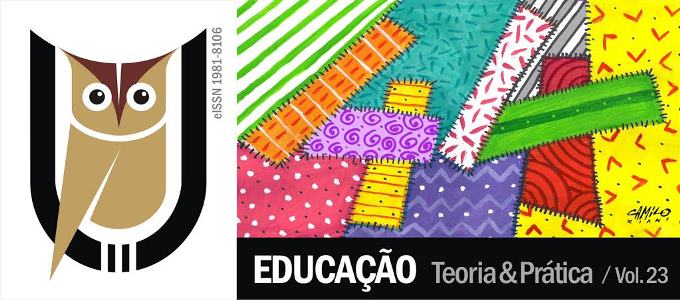Teacher Profession: the affective dimension contemplated in identity
DOI:
https://doi.org/10.18675/1981-8106.vol23.n44.p4-23Keywords:
Affective dimension. Teacher Identity. Teacher Professionalism.Abstract
The research emerges from the scene of crises and contradictions involving education, the teachers and their identity. In an attempt to unveiling this identity in order to find elements that contribute to the construction of the teaching profession, we started with the assumption of the importance of investing in personal development teacher, contemplating their affection. The objective was to identify as from speech and practice´s teachers the constituent aspects of the dimension (socio-)affective identity of the teachers. This is a qualitative research, as instruments of data collection observations and semi structured interviews. The information include different categories of professional teaching, so that you can visualize how the affection assumes keys role in the formations and work of teachers, since their development enables the construction of the differentiated pedagogical practice, facilitating the elaboration of pedagogical collective and even when recognized and developed in undergraduate, contributes to personal beliefs and principles may be reassessed under a scientific perspective and professional.Downloads
Additional Files
Published
How to Cite
Issue
Section
License
Authors who publish in this journal agree to the following terms:
a) Authors assign copyright to the journal, with the work simultaneously licensed under the Creative Commons Attribution License that allows sharing of the work with acknowledgment of authorship and publication in this journal.
b) The policy adopted by the Editorial Committee is to assign copyright only after a period of 30 months from the date of publication of the article. After this time, authors interested in publishing the same text in another work must send a letter to the Editorial Committee requesting the release of the assignment of copyright and wait for a response.
c) This journal provides public access to all its content, since this allows greater visibility and reach of published articles and reviews. For more information on this approach, visit the Public Knowledge Project, a project that developed this system to improve the academic and public quality of research, by distributing OJS as well as other software to support the public access publication system to academic sources. The names and email addresses on this website will be used exclusively for the purposes of the journal and will not be available for other purposes. This journal provides open any other party  This work is licensed under a Creative Commons License
This work is licensed under a Creative Commons License











